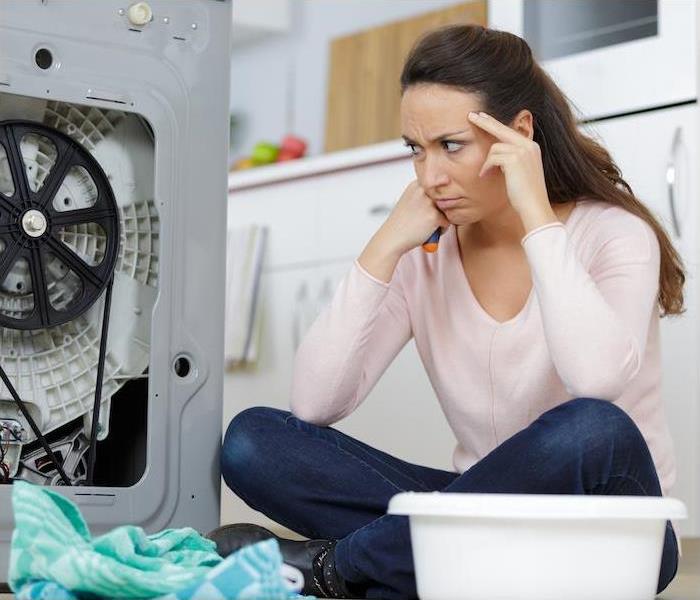Stop Appliance Water Damage Before It Starts | SERVPRO® of Flagstaff/East Sedona
2/5/2020 (Permalink)
Any appliance that requires water to run will be prone to leaks, and it is important to catch these leaks early in order to avoid extensive water damage from occurring. Appliances are not frequently moved or inspected, but it is wise for homeowners to get into this habit in order to catch any water damage early on.
Hot Water Heater
Hot water heaters have been known to last up to 15 years as a unit, but their individual parts can leak in a much shorter span of time. Checking the seals and pipes connected to the hot water heater is the best way to prevent this from becoming severe.
Refrigerator
Refrigerators are connected to the home’s water lines with malleable plastic tubing in most cases, which can be prone to tears and leaks. Moving the refrigerator away from the wall often is the best prevention against this—making it a regular habit will ensure that water damage is not allowed to fester and cause more serious damage.
Dishwasher
Dishwashers have many of the same considerations as refrigerators, coupled with the fact that they use even more water. Many homeowners are shocked to find that dishwasher-caused damage is not covered by their homeowner’s policy, making this an even more important consideration to keep up with.
Washing Machine
Hoses that run to the back of the washing machine are one of the most common household items that will develop a leak—so much so that they should be checked at least once per month for any leaks. Additionally, they are recommended to be replaced in five-year intervals as they can begin to deteriorate from the inside out.
Air Conditioner
The drain in your HVAC unit is designed to keep condensation from pooling in and around the unit, but if this drain malfunctions, water damage can quickly occur. Reference your manufacturer’s manual to determine how often your unit should be inspected and serviced—having a professional technician evaluate your machine is the best defense against HVAC-created water damage.
If your home has been impacted by water damage or you’d like to put a plan in place in case it happens to you, contact us to learn how we can help.






 24/7 Emergency Service
24/7 Emergency Service
